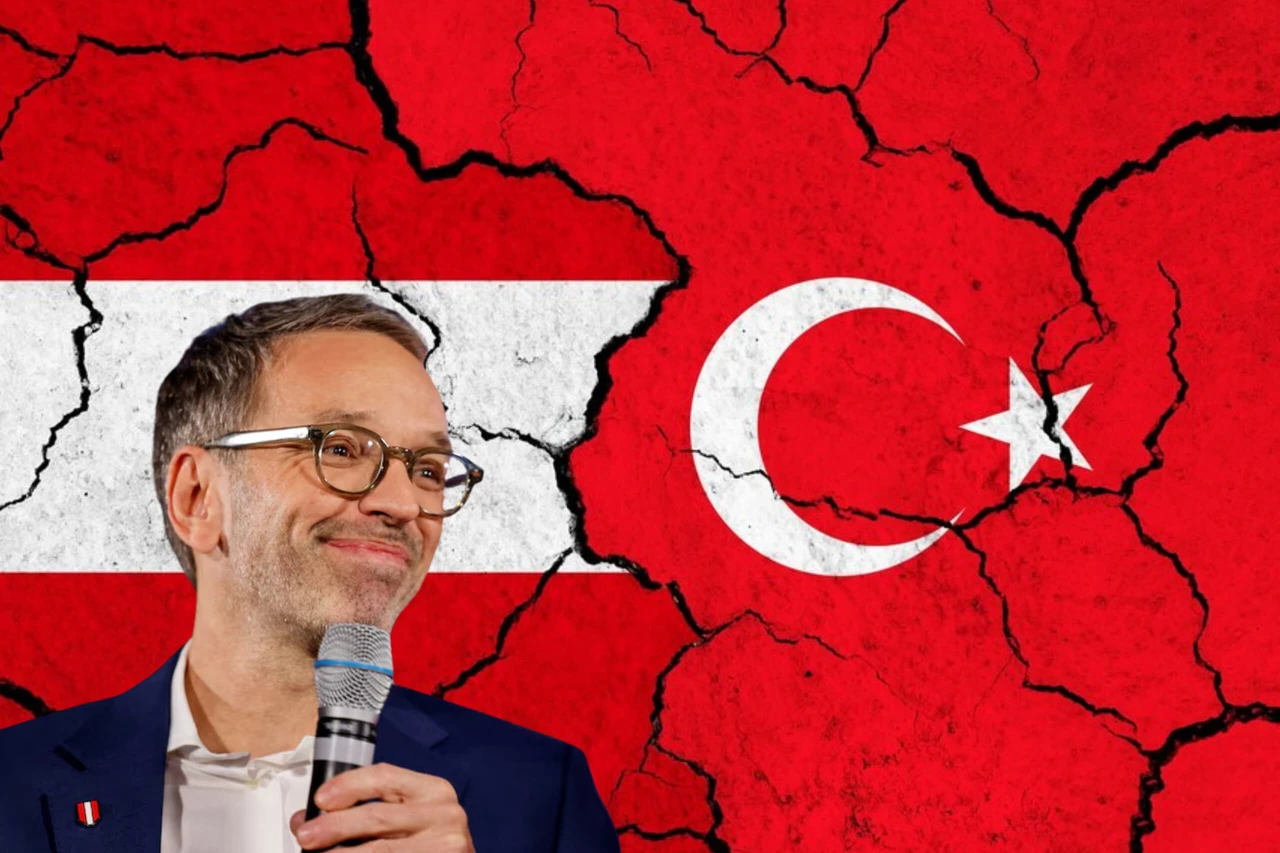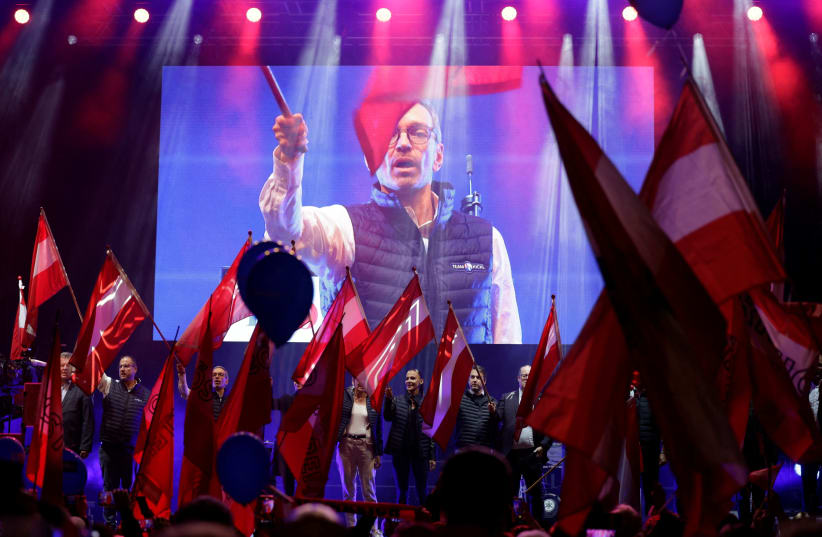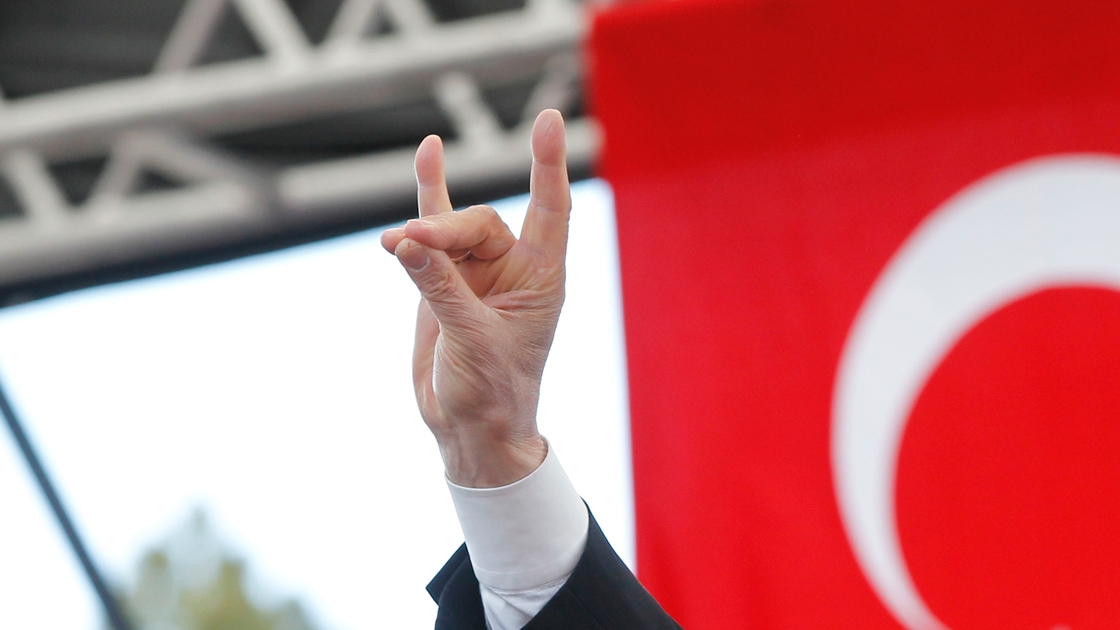Far-Right FPO claims support from Turkish youth ahead of Austrian elections
 Herbert Kickl with the flags of Türkiye and Austria in the background, September 29, 2024 (Photo collage by Koray Erdogan/Türkiye Today)
Herbert Kickl with the flags of Türkiye and Austria in the background, September 29, 2024 (Photo collage by Koray Erdogan/Türkiye Today)
Turkish-origin youth are reportedly backing the controversial Far-right Freedom Party of Austria (FPO) as it gains momentum on anti-immigrant and nationalist policies.
In the run-up to Austria’s parliamentary elections, FPO continues to stir controversy with its rhetoric on immigration and national identity.
Party leader Herbert Kickl recently took to social media to highlight unexpected support from Turkish-origin youth, further polarizing the public debate.

FPO gains traction with anti-immigrant stance
The FPO, known for its hardline stance against immigration and asylum-seekers, has capitalized on fears surrounding issues like migration, Ukraine and inflation. The party, whose platform advocates strict border controls and the deportation of undocumented immigrants, has now shifted its attention to a surprising demographic: Turkish-origin youth living in Austria.
On July 17, 2024, Kickl shared a video featuring a young man of Turkish descent, claiming that well-integrated immigrants are increasingly supportive of the FPO’s policies. The video featured the young man stating his belief in the party’s values, alongside a message praising those who have integrated successfully into Austrian society.

‘They share our values’
The party’s social media post stated:
People who originally come from other countries but have integrated well have been living in our nation for decades. They speak our language, work here, pay taxes here, and identify with our homeland. They share our values and contribute to the richness of our society.
The FPO’s recent messaging emphasized a division between immigrants who have assimilated into Austrian culture and those they claim have failed to integrate. The party draws support from those who feel Austria’s national identity is under threat from recent waves of refugees and migrants.

Divisive approach to immigration
While the FPO enjoys growing popularity among certain segments of the population, particularly those opposed to Austria’s liberal immigration policies, its appeal to Turkish-origin youth has raised eyebrows. The FPO has traditionally been critical of immigrant communities, particularly those from Muslim-majority countries like Türkiye.
However, the new strategy seems to focus on creating an image of selective inclusion, embracing those deemed “well-integrated” while continuing to campaign against new arrivals and asylum-seekers. This shift in narrative has sparked concern among left-leaning parties and immigrant advocacy groups, who accuse the FPO of opportunism.
Austrian politics at a crossroads
As the parliamentary elections draw closer, the FPO is gaining ground. Recent exit polls suggest that the far-right party could emerge as a significant force, leveraging anti-immigrant sentiment to attract votes from diverse segments of the electorate. Despite its controversial positions, the FPO has successfully tapped into the frustrations of Austrians grappling with inflation and the aftermath of the COVID-19 pandemic.
For many young voters, including those of immigrant backgrounds, the promise of stability and a return to conservative values has a certain appeal. However, critics argue that the party’s divisive tactics threaten social cohesion in Austria, particularly in multicultural urban areas.

Broader European trend
Austria’s political landscape is not unique in its shift toward the far-right. Across Europe, nationalist and anti-immigrant parties have been gaining ground in recent elections, from Sweden to Italy. The FPO’s growing popularity reflects a broader trend in which far-right movements capitalize on economic instability and concerns over national identity.
The outcome of the upcoming Austrian parliamentary elections could have significant implications for the future of immigration policy in Austria and beyond, potentially influencing other European countries grappling with similar issues.

Herbert Kickl imposes special bans on Turks in 2018
During Kickl’s tenure as Austria’s interior minister in 2018, he announced plans to ban a series of hand gestures, including the “rabia”, victory sign and wolf sign, in an effort to combat extremist groups.
The “rabia” – a gesture popularized by President Recep Tayyip Erdogan to mean “one nation, one flag, one homeland, and one state” – and the wolf sign, a symbol of Turkish nationalism were banned, leading to a backlash from Turkish origin Austrian citizens in 2018.
Polarized future?
As Austria prepares for a pivotal election, the FPO’s strategy of appealing to both traditional voters and well-integrated immigrants reflects a complex political landscape. Whether the party’s outreach to Turkish-origin youth will lead to lasting support or further division remains to be seen.
What is certain, however, is that Austria’s political future hangs in the balance, with far-reaching implications for its immigrant communities and national identity.



